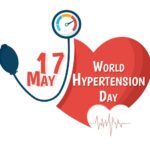(From L to R): Patient Mr. Ramgopal; Dr Surender Dabas, Director, Head, Neck and Thorax Surgical Oncology, Fortis Memorial Research Institute and Mr Amalkanti Bhowmik (Patient)
Study findings: 57 stage I&II Oral cancer patients who underwent TORS had 80% success
New Delhi, May 25, 2017: Fortis Memorial Research Institute (FMRI) piloted a first of its kind study on patients suffering from early stageoropharyngeal carcinoma (cancer of the mouth, neck and throat). Transoral robotic surgery (TORS) was conducted on 57 patients under the leadership of Dr Surender Dabas, Director, Head, Neck and Thorax Surgical Oncology, FMRI. This novel and path-breaking surgical technique is instrumental in healing patients suffering from HPV negative cancers which are caused mostly due to tobacco consumption.
In a study that got published in “Oral Oncology” journal was conducted between March 2013 to October 2015 on 57 patients suffering from early stage (I&II) oropharyngeal carcinoma who underwent TORS robotic surgery conducted with the assistance of a surgical robot to remove a tumor from the mouth or throat. Out of these 57 patients, 48 males and 9 females underwent TORS. When presented, the mean age of the 57 patients was 59.4 years. The most common site of involvement was the base of tongue (BOT) in 31 (54.8%) patients. Twenty-four (42.1%) patients were stage I and 33 (57.9%) were Stage II at presentation. Forty-three (89.6%) patients were disease free with an overall survival of 93.8% at a mean follow-up of 29 months.
In TORS, the arms of the robot are strategically placed inside the mouth of the patient. The main advantage of TORS is that it allows the surgeon access, via the mouth to areas that his or her hands probably couldn’t reach through the mouth itself. TORS is a relatively new approach to remove cancers from areas in the throat that are difficult to access, including the base of tongue and low down in the bottom of the tonsil. These two areas, along with other parts of the oropharynx (soft palate, posterior oropharynx wall), remain the main tumor sites for which TORS is used.
Speaking at the conference, a cancer survivor, 76-year-old Mr Amalkanti Bhowmik explained how opting for Robotic surgery proved a boon for him. “I developed difficulty in swallowing food and soon even water in March this year. When my family took me to a doctor, an endoscopy revealed a lesion inside my throat. Subsequently, samples were sent for biopsy which confirmed stage I cancer of the Larynx (voice box). We went to several doctors thereafter to and most gave us the option of radiation followed by surgery, due to my age. However, we knew that the outcome of radiation would have led to further deterioration in my health. It was then that a nephew practicing medicine in UK recommended robotic surgery for my cancer. I have been disease free since my surgery and have been recovering well for my age,” he said
Dr Surender Dabas, Director, Head, Neck and Thorax Surgical Oncology, FMRI said, “In comparison to HPV negative cancers HPV positive cancers are more responsive to chemotherapy and radiation treatment. In India majority (nearly 70%) of all oropharyngeal cancers are HPV negative. This is the reason that TORS is a viable treatment option of HPV negative cancers. In order to avoid the side effects of undergoing a traditional open surgery, if the cancer has been caught at an early stage, TORS is adopted. Posing significant benefits to the patients, it prevents functional impairments to speech and swallowing. It is a fast surgery and precise, intricate and intensive in its execution. The amount of blood loss and the recovery time required post the operation is remarkably minimal. As this method can be implemented without prior chemo therapy, it allows the patient to be free of any toxicity associated with the same.”
Dr Simmardeep Singh Gill, Zonal Director, FMRI said, “This is a first-of-its-kind single institutional prospective study which evaluated the functional outcome and oncological outcome in early stage HPV negative carcinoma. This has been made possible by Dr Surender Dabas, who is one of the few surgeons who has conducted close to 500 robot-aided surgeries for head and neck cancer in India. This kind of surgery has a definite success rate in comparison to other forms of treatment for cancers of neck, throat and head”
The incidence of oropharyngeal carcinoma is increasing in India. As per estimates, there were estimated 38,691 new cases of oropharyngeal cancers in India in 2012. As compared to the developed countries, where the increase in the incidence of oropharyngeal carcinoma is mainly attributed to the epidemic increase in the incidence of HPV infection, the leading cause of oropharyngeal carcinoma in India is exposure to tobacco and alcohol. On the other hand the prevalence of HPV positive in oropharyngeal carcinoma in India ranges from 20–30%. According to the World Health Organization (WHO) tobacco consumption accounted for 100 million premature deaths in the 20th century and is expected to rise to 1 billion in the 21st century. As per the Global Adult tobacco Survey India, 2010, 34.6% of India’s adults are tobacco consumers. Every year, there are 1 million deaths in India due to tobacco consumption.








I see something really special in this website.
http://www.borvestinkral.com/